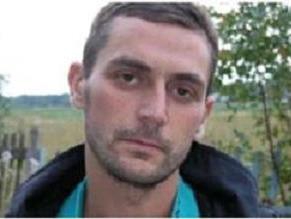|
Analytics

Igor Garkavenko (photo by reznichenko-d.livejournal.com)
|
Should we be happy at an anti-Semite's arest?
08.02.2011, Xenophobia and anti-Semitism
Vyacheslav Likhachev
The “Tax Maidan” in the middle of Kyiv, as well as all of the vicissitudes around the adoption of the new Tax Code and the protests against it, are naturally relevant to the Jewish community, as Jews live in the same common social and economic context as all other Ukrainian citizens, and freedom of entrepreneurship, standard of living, and level of social security define the Jewish community's way of life in many ways.
However, in connection with the Kyiv protests against the Tax Code, my attention was drawn to one seemingly unimportant detail. As it is well known, after the strange compromise that was achieved, the authorities began a slow counteroffensive on the most radical opponents of the tax reform – the activists of the “Tax Maidan.” Before the New Year, on the 28th of December, the Shevchenko District Court made a decision to hold three participants of the protest under arrest. They are being incriminated with damaging Maidan paving while putting up tents. In legalese this is defined as “extreme deliberate destruction or damage of property in previous concert with a group.” The strange part was that the arrested were neither organizators nor leaders of the protests. According to the coordinator of the “Tax Madian” Oleksandr Danylyuk, “all they did was come to the tent city a couple of times, bring food, and help out.”
If we add that one of those arrested, Igor Garkavenko, had been tried previous, the situation becomes clearer. If we remember the reason for his incarceration, we can understand what the Jewish community has to do with this situation. Garkavenko, a pro-Russian extremist from Kharkiv, was convicted in 1998 for a series of burnings done with a group of several accomplices. Using Molotov cocktails, they burned the offices of several Ukrainian patriotic and nationalistic organizations, like Prosvita and UNA. They also set fire to the Israel Cultural Center, as, according to Garkavenko, “a considerable proportion of the populace knows the role of the State of Israel, and the elites related to it, in those disastrous processes that the peoples of the former Soviet Union are now living in.” When he received his freedom at the end of the 2000s, the arsonist reduced his anti-Ukrainian radicalism somewhat, but did not drop his anti-Semitism. In particular, he actively worked on the election campaign of S. Ratushniak – he was the one who orchestrated the memorable rally before the Embassy of Israel a year ago.
As little sympathy as I may have for a particular anti-Semite, the circumstances around the arrest of I. Garkavenko in connection with the Maidan protests are rather dubious. It could, of course, be simple coincidence that he was the one grabbed by the police – and it is always possible that he was the one who damaged that infelicific paving. However, it does seem that the former arsonist was out behind bars because of his past. I will not be surprised if during his trial, the whole case will be presented so that the active core of the protesters against the new Tax Codes are not only criminals, but “Fascists,” and anti-Semites. There was a similar situation in 2001, when UNA-UNSO members were named responsible for the disorders of the 9th of March. Besides, in the last few months there were other cases of fairly unexpected convictions of radicals who were noticed in protest rallies, like the three-month old (before local elections) conviction of Daniyal Ametov, a religious radical and one of the leaders of the Crimean Tatar land protests, also on fairly dubious evidence. And this is not restricted to radicals of all kinds, either – off the top of my head, I can think of the almost certainly falsified process of Dmitry Groisman, the famous human rights activist from Vinnitsa.
It is probably early to talk about a clear tendency, but I will nonetheless hazard a guess that the crackdown in Ukraine has reached the marginal and radical segments of the sociopolitical spectrum. And I am not at all certain that this is a positive tendency if people, however I may look upon their actions and position, are being sent to jail on dubious evidence. And abuse of discretion should certainly be opposed where there is obvious falsification of cases against human rights activists or politicians from the opposition.
For the newspaper “Hadashot.”
|
|
